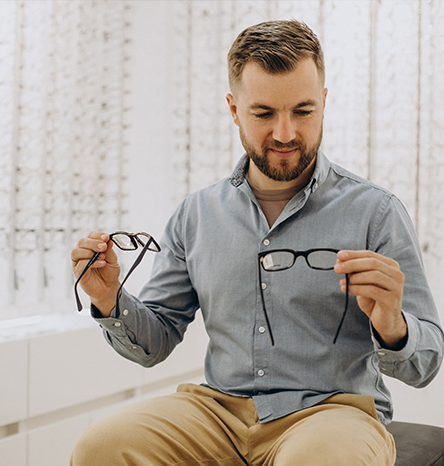Optical Services
"Optical services" encompass a wide range of services related to vision correction, eyewear, and eye health. Comprehensive eye exams are conducted by optometrists or ophthalmologists to assess vision, detect eye diseases, and determine the need for vision correction.Here's a brief overview:
- Eye Exams
- Prescription Eyewear
- Contact Lens Fitting
- Eyeglass Frames and Lenses

